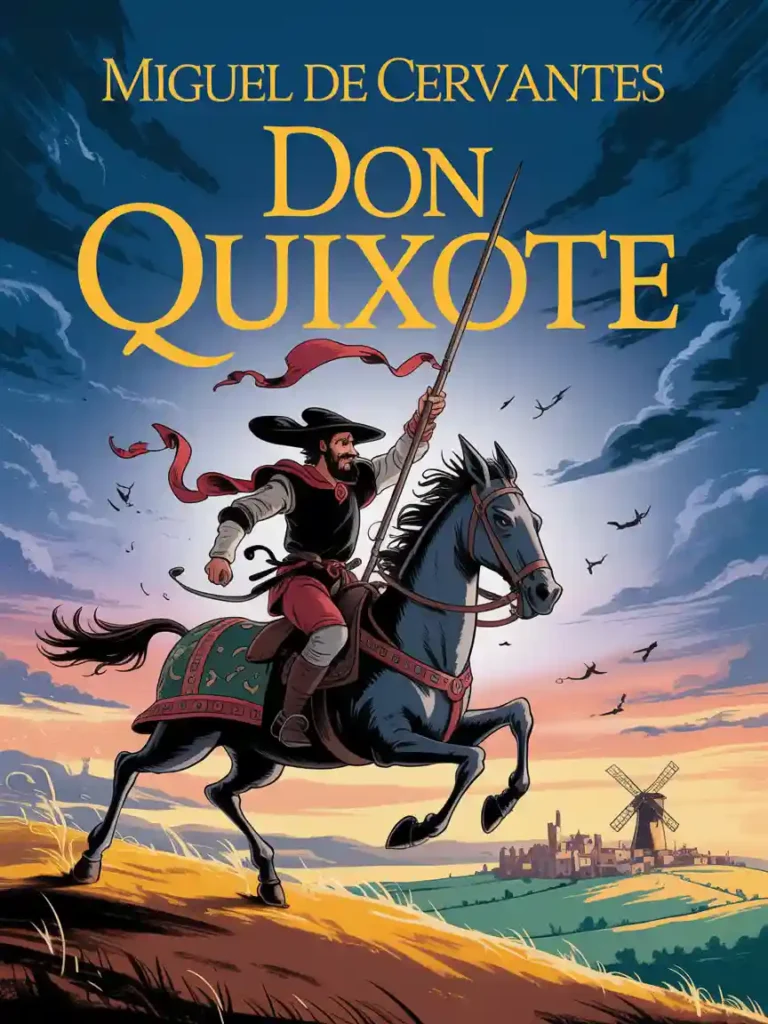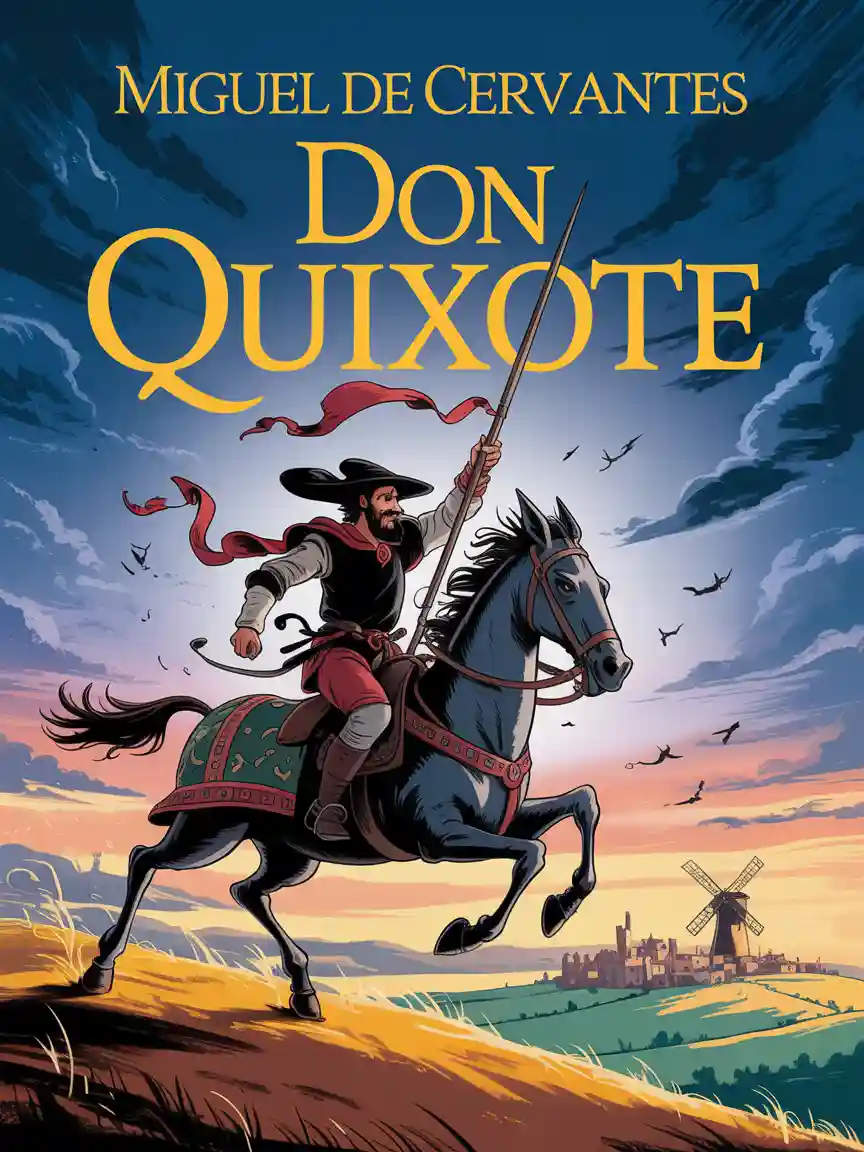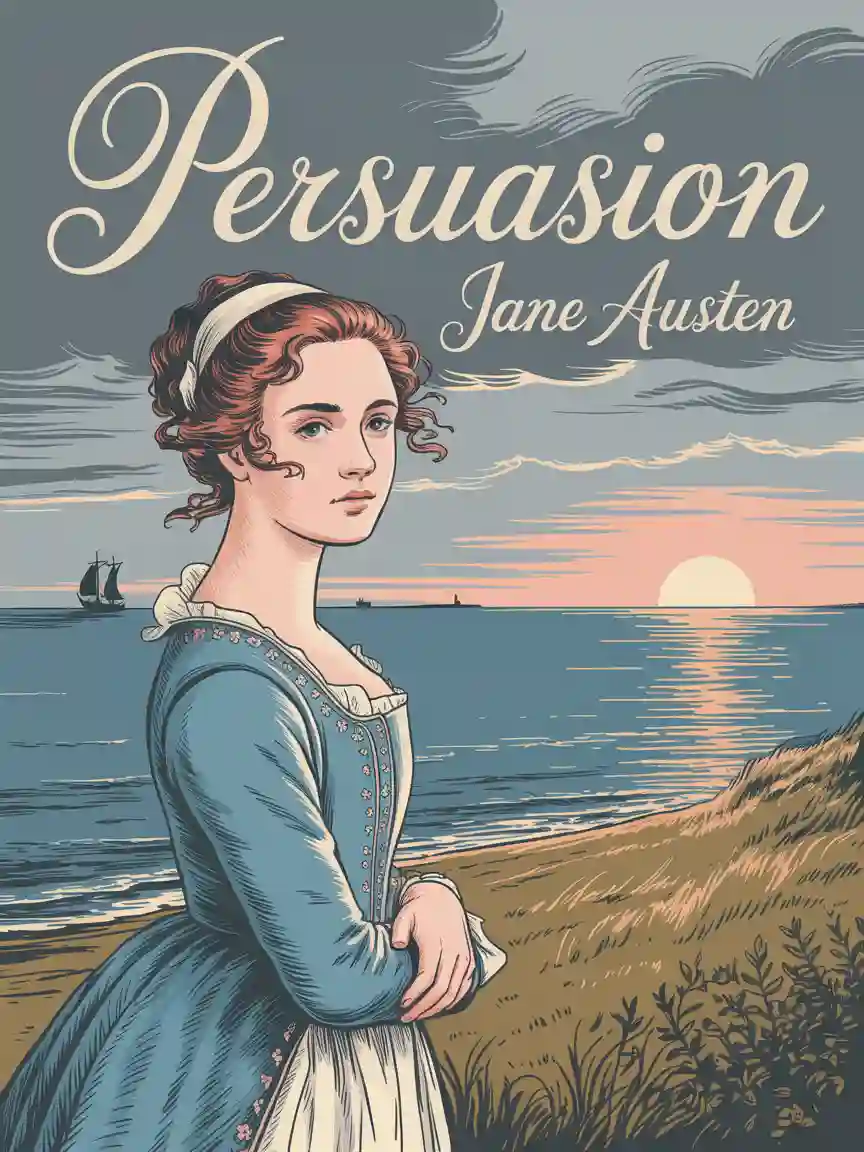CHAPTER 37
IN WHICH IS CONTINUED THE STORY OF THE FAMOUS PRINCESS MICOMICONA, WITH
OTHER DROLL ADVENTURES
To all this Sancho listened with no little sorrow at heart to see how his
hopes of dignity were fading away and vanishing in smoke, and how the
fair Princess Micomicona had turned into Dorothea, and the giant into Don
Fernando, while his master was sleeping tranquilly, totally unconscious of
all that had come to pass. Dorothea was unable to persuade herself that her
present happiness was not all a dream; Cardenio was in a similar state of
mind, and Luscinda’s thoughts ran in the same direction. Don Fernando
gave thanks to Heaven for the favour shown to him and for having been res-
cued from the intricate labyrinth in which he had been brought so near the
destruction of his good name and of his soul; and in short everybody in the
inn was full of contentment and satisfaction at the happy issue of such a
complicated and hopeless business. The curate as a sensible man made
sound reflections upon the whole affair, and congratulated each upon his
good fortune; but the one that was in the highest spirits and good humour
was the landlady, because of the promise Cardenio and the curate had given
her to pay for all the losses and damage she had sustained through Don
Quixote’s means. Sancho, as has been already said, was the only one who
was distressed, unhappy, and dejected; and so with a long face he went in to
his master, who had just awoke, and said to him:
“Sir Rueful Countenance, your worship may as well sleep on as much as
you like, without troubling yourself about killing any giant or restoring her
kingdom to the princess; for that is all over and settled now.”
“I should think it was,” replied Don Quixote, “for I have had the most
prodigious and stupendous battle with the giant that I ever remember having
had all the days of my life; and with one back-stroke-swish!—I brought his
head tumbling to the ground, and so much blood gushed forth from him that
it ran in rivulets over the earth like water.”
“Like red wine, your worship had better say,” replied Sancho; “for I
would have you know, if you don’t know it, that the dead giant is a hacked
wine-skin, and the blood four-and-twenty gallons of red wine that it had in
its belly, and the cut-off head is the bitch that bore me; and the devil take it
all.”
“What art thou talking about, fool?” said Don Quixote; “art thou in thy
senses?”
“Let your worship get up,” said Sancho, “and you will see the nice busi-
ness you have made of it, and what we have to pay; and you will see the
queen turned into a private lady called Dorothea, and other things that will
astonish you, if you understand them.”
“I shall not be surprised at anything of the kind,” returned Don Quixote;
“for if thou dost remember the last time we were here I told thee that every-
thing that happened here was a matter of enchantment, and it would be no
wonder if it were the same now.”
“I could believe all that,” replied Sancho, “if my blanketing was the same
sort of thing also; only it wasn’t, but real and genuine; for I saw the land-
lord, Who is here to-day, holding one end of the blanket and jerking me up
to the skies very neatly and smartly, and with as much laughter as strength;
and when it comes to be a case of knowing people, I hold for my part, sim-
ple and sinner as I am, that there is no enchantment about it at all, but a
great deal of bruising and bad luck.”
“Well, well, God will give a remedy,” said Don Quixote; “hand me my
clothes and let me go out, for I want to see these transformations and things
thou speakest of.”
Sancho fetched him his clothes; and while he was dressing, the curate
gave Don Fernando and the others present an account of Don Quixote’s
madness and of the stratagem they had made use of to withdraw him from
that Pena Pobre where he fancied himself stationed because of his lady’s
scorn. He described to them also nearly all the adventures that Sancho had
mentioned, at which they marvelled and laughed not a little, thinking it, as
all did, the strangest form of madness a crazy intellect could be capable of.
But now, the curate said, that the lady Dorothea’s good fortune prevented
her from proceeding with their purpose, it would be necessary to devise or
discover some other way of getting him home.
Cardenio proposed to carry out the scheme they had begun, and suggest-
ed that Luscinda would act and support Dorothea’s part sufficiently well.
“No,” said Don Fernando, “that must not be, for I want Dorothea to fol-
low out this idea of hers; and if the worthy gentleman’s village is not very
far off, I shall be happy if I can do anything for his relief.”
“It is not more than two days’ journey from this,” said the curate.
“Even if it were more,” said Don Fernando, “I would gladly travel so far
for the sake of doing so good a work.
“At this moment Don Quixote came out in full panoply, with Mambrino’s
helmet, all dinted as it was, on his head, his buckler on his arm, and leaning
on his staff or pike. The strange figure he presented filled Don Fernando and
the rest with amazement as they contemplated his lean yellow face half a
league long, his armour of all sorts, and the solemnity of his deportment.
They stood silent waiting to see what he would say, and he, fixing his eyes
on the air Dorothea, addressed her with great gravity and composure:
“I am informed, fair lady, by my squire here that your greatness has been
annihilated and your being abolished, since, from a queen and lady of high
degree as you used to be, you have been turned into a private maiden. If this
has been done by the command of the magician king your father, through
fear that I should not afford you the aid you need and are entitled to, I may
tell you he did not know and does not know half the mass, and was little
versed in the annals of chivalry; for, if he had read and gone through them
as attentively and deliberately as I have, he would have found at every turn
that knights of less renown than mine have accomplished things more diffi-
cult: it is no great matter to kill a whelp of a giant, however arrogant he may
be; for it is not many hours since I myself was engaged with one, and-I will
not speak of it, that they may not say I am lying; time, however, that reveals
all, will tell the tale when we least expect it.”
“You were engaged with a couple of wine-skins, and not a giant,” said the
landlord at this; but Don Fernando told him to hold his tongue and on no
account interrupt Don Quixote, who continued, “I say in conclusion, high
and disinherited lady, that if your father has brought about this metamor-
phosis in your person for the reason I have mentioned, you ought not to at-
tach any importance to it; for there is no peril on earth through which my
sword will not force a way, and with it, before many days are over, I will
bring your enemy’s head to the ground and place on yours the crown of
your kingdom.”
Don Quixote said no more, and waited for the reply of the princess, who
aware of Don Fernando’s determination to carry on the deception until Don
Quixote had been conveyed to his home, with great ease of manner and
gravity made answer, “Whoever told you, valiant Knight of the Rueful
Countenance, that I had undergone any change or transformation did not tell
you the truth, for I am the same as I was yesterday. It is true that certain
strokes of good fortune, that have given me more than I could have hoped
for, have made some alteration in me; but I have not therefore ceased to be
what I was before, or to entertain the same desire I have had all through of
availing myself of the might of your valiant and invincible arm. And so,
senor, let your goodness reinstate the father that begot me in your good
opinion, and be assured that he was a wise and prudent man, since by his
craft he found out such a sure and easy way of remedying my misfortune;
for I believe, senor, that had it not been for you I should never have lit upon
the good fortune I now possess; and in this I am saying what is perfectly
true; as most of these gentlemen who are present can fully testify. All that
remains is to set out on our journey to-morrow, for to-day we could not
make much way; and for the rest of the happy result I am looking forward
to, I trust to God and the valour of your heart.”
So said the sprightly Dorothea, and on hearing her Don Quixote turned to
Sancho, and said to him, with an angry air, “I declare now, little Sancho,
thou art the greatest little villain in Spain. Say, thief and vagabond, hast
thou not just now told me that this princess had been turned into a maiden
called Dorothea, and that the head which I am persuaded I cut off from a
giant was the bitch that bore thee, and other nonsense that put me in the
greatest perplexity I have ever been in all my life? I vow” (and here he
looked to heaven and ground his teeth) “I have a mind to play the mischief
with thee, in a way that will teach sense for the future to all lying squires of
knights-errant in the world.”
“Let your worship be calm, senor,” returned Sancho, “for it may well be
that I have been mistaken as to the change of the lady princess Micomicona;
but as to the giant’s head, or at least as to the piercing of the wine-skins, and
the blood being red wine, I make no mistake, as sure as there is a God; be-
cause the wounded skins are there at the head of your worship’s bed, and the
wine has made a lake of the room; if not you will see when the eggs come
to be fried; I mean when his worship the landlord calls for all the damages:
for the rest, I am heartily glad that her ladyship the queen is as she was, for
it concerns me as much as anyone.”
“I tell thee again, Sancho, thou art a fool,” said Don Quixote; “forgive
me, and that will do.”
“That will do,” said Don Fernando; “let us say no more about it; and as
her ladyship the princess proposes to set out to-morrow because it is too late
to-day, so be it, and we will pass the night in pleasant conversation, and to-
morrow we will all accompany Senor Don Quixote; for we wish to witness
the valiant and unparalleled achievements he is about to perform in the
course of this mighty enterprise which he has undertaken.”
“It is I who shall wait upon and accompany you,” said Don Quixote; “and
I am much gratified by the favour that is bestowed upon me, and the good
opinion entertained of me, which I shall strive to justify or it shall cost me
my life, or even more, if it can possibly cost me more.”
Many were the compliments and expressions of politeness that passed
between Don Quixote and Don Fernando; but they were brought to an end
by a traveller who at this moment entered the inn, and who seemed from his
attire to be a Christian lately come from the country of the Moors, for he
was dressed in a short-skirted coat of blue cloth with half-sleeves and with-
out a collar; his breeches were also of blue cloth, and his cap of the same
colour, and he wore yellow buskins and had a Moorish cutlass slung from a
baldric across his breast. Behind him, mounted upon an ass, there came a
woman dressed in Moorish fashion, with her face veiled and a scarf on her
head, and wearing a little brocaded cap, and a mantle that covered her from
her shoulders to her feet. The man was of a robust and well-proportioned
frame, in age a little over forty, rather swarthy in complexion, with long
moustaches and a full beard, and, in short, his appearance was such that if
he had been well dressed he would have been taken for a person of quality
and good birth. On entering he asked for a room, and when they told him
there was none in the inn he seemed distressed, and approaching her who
by her dress seemed to be a Moor he her down from saddle in his arms. Lu-
scinda, Dorothea, the landlady, her daughter and Maritornes, attracted by
the strange, and to them entirely new costume, gathered round her; and
Dorothea, who was always kindly, courteous, and quick-witted, perceiving
that both she and the man who had brought her were annoyed at not finding
a room, said to her, “Do not be put out, senora, by the discomfort and want
of luxuries here, for it is the way of road-side inns to be without them; still,
if you will be pleased to share our lodging with us (pointing to Luscinda)
perhaps you will have found worse accommodation in the course of your
journey.”
To this the veiled lady made no reply; all she did was to rise from her
seat, crossing her hands upon her bosom, bowing her head and bending her
body as a sign that she returned thanks. From her silence they concluded
that she must be a Moor and unable to speak a Christian tongue.
At this moment the captive came up, having been until now otherwise
engaged, and seeing that they all stood round his companion and that she
made no reply to what they addressed to her, he said, “Ladies, this damsel
hardly understands my language and can speak none but that of her own
country, for which reason she does not and cannot answer what has been
asked of her.”
“Nothing has been asked of her,” returned Luscinda; “she has only been
offered our company for this evening and a share of the quarters we occupy,
where she shall be made as comfortable as the circumstances allow, with
the good-will we are bound to show all strangers that stand in need of it, es-
pecially if it be a woman to whom the service is rendered.”
“On her part and my own, senora,” replied the captive, “I kiss your hands,
and I esteem highly, as I ought, the favour you have offered, which, on such
an occasion and coming from persons of your appearance, is, it is plain to
see, a very great one.”
“Tell me, senor,” said Dorothea, “is this lady a Christian or a Moor? for
her dress and her silence lead us to imagine that she is what we could wish
she was not.”
“In dress and outwardly,” said he, “she is a Moor, but at heart she is a
thoroughly good Christian, for she has the greatest desire to become one.”
“Then she has not been baptised?” returned Luscinda.
“There has been no opportunity for that,” replied the captive, “since she
left Algiers, her native country and home; and up to the present she has not
found herself in any such imminent danger of death as to make it necessary
to baptise her before she has been instructed in all the ceremonies our holy
mother Church ordains; but, please God, ere long she shall be baptised with
the solemnity befitting her which is higher than her dress or mine
indicates.”
By these words he excited a desire in all who heard him, to know who
the Moorish lady and the captive were, but no one liked to ask just then,
seeing that it was a fitter moment for helping them to rest themselves than
for questioning them about their lives. Dorothea took the Moorish lady by
the hand and leading her to a seat beside herself, requested her to remove
her veil. She looked at the captive as if to ask him what they meant and
what she was to do. He said to her in Arabic that they asked her to take off
her veil, and thereupon she removed it and disclosed a countenance so love-
ly, that to Dorothea she seemed more beautiful than Luscinda, and to Lus-
cinda more beautiful than Dorothea, and all the bystanders felt that if any
beauty could compare with theirs it was the Moorish lady’s, and there were
even those who were inclined to give it somewhat the preference. And as it
is the privilege and charm of beauty to win the heart and secure good-will,
all forthwith became eager to show kindness and attention to the lovely
Moor.
Don Fernando asked the captive what her name was, and he replied that
it was Lela Zoraida; but the instant she heard him, she guessed what the
Christian had asked, and said hastily, with some displeasure and energy,
“No, not Zoraida; Maria, Maria!” giving them to understand that she was
called “Maria” and not “Zoraida.” These words, and the touching earnest-
ness with which she uttered them, drew more than one tear from some of
the listeners, particularly the women, who are by nature tender-hearted and
compassionate. Luscinda embraced her affectionately, saying, “Yes, yes,
Maria, Maria,” to which the Moor replied, “Yes, yes, Maria; Zoraida
macange,” which means “not Zoraida.”
Night was now approaching, and by the orders of those who accompa-
nied Don Fernando the landlord had taken care and pains to prepare for
them the best supper that was in his power. The hour therefore having ar-
rived they all took their seats at a long table like a refectory one, for round
or square table there was none in the inn, and the seat of honour at the head
of it, though he was for refusing it, they assigned to Don Quixote, who de-
sired the lady Micomicona to place herself by his side, as he was her protec-
tor. Luscinda and Zoraida took their places next her, opposite to them were
Don Fernando and Cardenio, and next the captive and the other gentlemen,
and by the side of the ladies, the curate and the barber. And so they supped
in high enjoyment, which was increased when they observed Don Quixote
leave off eating, and, moved by an impulse like that which made him deliv-
er himself at such length when he supped with the goatherds, begin to ad-
dress them:
“Verily, gentlemen, if we reflect upon it, great and marvellous are the
things they see, who make profession of the order of knight-errantry. Say,
what being is there in this world, who entering the gate of this castle at this
moment, and seeing us as we are here, would suppose or imagine us to be
what we are? Who would say that this lady who is beside me was the great
queen that we all know her to be, or that I am that Knight of the Rueful
Countenance, trumpeted far and wide by the mouth of Fame? Now, there
can be no doubt that this art and calling surpasses all those that mankind has
invented, and is the more deserving of being held in honour in proportion as
it is the more exposed to peril. Away with those who assert that letters have
the preeminence over arms; I will tell them, whosoever they may be, that
they know not what they say. For the reason which such persons commonly
assign, and upon which they chiefly rest, is, that the labours of the mind are
greater than those of the body, and that arms give employment to the body
alone; as if the calling were a porter’s trade, for which nothing more is re-
quired than sturdy strength; or as if, in what we who profess them call arms,
there were not included acts of vigour for the execution of which high intel-
ligence is requisite; or as if the soul of the warrior, when he has an army, or
the defence of a city under his care, did not exert itself as much by mind as
by body. Nay; see whether by bodily strength it be possible to learn or di-
vine the intentions of the enemy, his plans, stratagems, or obstacles, or to
ward off impending mischief; for all these are the work of the mind, and in
them the body has no share whatever. Since, therefore, arms have need of
the mind, as much as letters, let us see now which of the two minds, that of
the man of letters or that of the warrior, has most to do; and this will be seen
by the end and goal that each seeks to attain; for that purpose is the more
estimable which has for its aim the nobler object. The end and goal of let-
ters—I am not speaking now of divine letters, the aim of which is to raise
and direct the soul to Heaven; for with an end so infinite no other can be
compared—I speak of human letters, the end of which is to establish dis-
tributive justice, give to every man that which is his, and see and take care
that good laws are observed: an end undoubtedly noble, lofty, and deserving
of high praise, but not such as should be given to that sought by arms,
which have for their end and object peace, the greatest boon that men can
desire in this life. The first good news the world and mankind received was
that which the angels announced on the night that was our day, when they
sang in the air, ‘Glory to God in the highest, and peace on earth to men of
good-will;’ and the salutation which the great Master of heaven and earth
taught his disciples and chosen followers when they entered any house, was
to say, ‘Peace be on this house;’ and many other times he said to them, ‘My
peace I give unto you, my peace I leave you, peace be with you;’ a jewel
and a precious gift given and left by such a hand: a jewel without which
there can be no happiness either on earth or in heaven. This peace is the true
end of war; and war is only another name for arms. This, then, being admit-
ted, that the end of war is peace, and that so far it has the advantage of the
end of letters, let us turn to the bodily labours of the man of letters, and
those of him who follows the profession of arms, and see which are the
greater.”
Don Quixote delivered his discourse in such a manner and in such correct
language, that for the time being he made it impossible for any of his hear-
ers to consider him a madman; on the contrary, as they were mostly gentle-
men, to whom arms are an appurtenance by birth, they listened to him with
great pleasure as he continued: “Here, then, I say is what the student has to
undergo; first of all poverty: not that all are poor, but to put the case as
strongly as possible: and when I have said that he endures poverty, I think
nothing more need be said about his hard fortune, for he who is poor has no
share of the good things of life. This poverty he suffers from in various
ways, hunger, or cold, or nakedness, or all together; but for all that it is not
so extreme but that he gets something to eat, though it may be at somewhat
unseasonable hours and from the leavings of the rich; for the greatest mis-
ery of the student is what they themselves call ‘going out for soup,’ and
there is always some neighbour’s brazier or hearth for them, which, if it
does not warm, at least tempers the cold to them, and lastly, they sleep com-
fortably at night under a roof. I will not go into other particulars, as for ex-
ample want of shirts, and no superabundance of shoes, thin and threadbare
garments, and gorging themselves to surfeit in their voracity when good
luck has treated them to a banquet of some sort. By this road that I have de-
scribed, rough and hard, stumbling here, falling there, getting up again to
fall again, they reach the rank they desire, and that once attained, we have
seen many who have passed these Syrtes and Scyllas and Charybdises, as if
borne flying on the wings of favouring fortune; we have seen them, I say,
ruling and governing the world from a chair, their hunger turned into sati-
ety, their cold into comfort, their nakedness into fine raiment, their sleep on
a mat into repose in holland and damask, the justly earned reward of their
virtue; but, contrasted and compared with what the warrior undergoes, all
they have undergone falls far short of it, as I am now about to show.”





